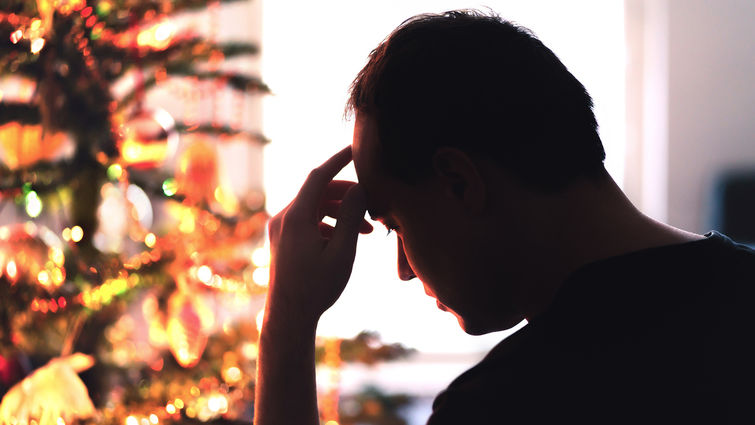
Marriage and family therapist, Stephen Graves, says adults can feel anxious in environments where trauma occurred at a young age.
Does going home for the holidays intimidate you? Though you may be healed from past experiences, Stephen Graves, LMFT, program manager at Loma Linda University Behavioral Health, says it’s possible to retract into old childhood habits, coping mechanisms, or trauma responses when revisiting certain environments or individuals. Graves explains why this happens and provides tips to overcome your anxiety in these scenarios.
Systems and subsystems in family units
Graves describes family units as systems, and within each there are subsystems. He says most people hold varying identities depending on the subsystem. Examples of subsystems include:
- Husband and wife
- Brother and sister
- Parent and child
A person is a child in their family of origin system, but once married, they’re a spouse within that new marital system. Graves says a person’s feelings are impacted by the role they play in each subsystem.
“No matter how old a person gets, they’re always going to be the kid in their parents’ system. The language used and subtle interactions implied solidify their role in that system,” Graves says. “They may only get referred to by their childhood nickname. Things like that can return them back to old patterns of behavior and activate old emotions.”
How to prepare for and handle negative scenarios
Graves recommends taking some time to yourself before heading into old environments to create or conceptualize a flash card. Take a mindful moment to recognize possible situations, conversations, and locations that may trigger unpleasant emotions and put them on your card. Once you recognize these scenarios, you can identify how to appropriately and positively redirect or handle the situation.
“Taking this time allows you to decrease the shock factor and feel like you are capable of overcoming even the worst of situations, which might not even happen,” Graves says.
Small things that may help are taking a trip to the restroom to wash your hands or face with cold water, taking a walk around the block, or removing yourself from a conversation and hopping into a neighboring conversation.
Graves says some people may feel extremely overwhelmed, and he doesn’t want them to feel stuck. If they can, he recommends driving to the family gathering separately so they can leave if they truly think the environment will cause that much anxiety.
“Painful things happened to all of us in our past — We can’t change those. The harder we try to change them, the more unhappy and anxious we become,” Graves says. “Learn to move forward, because you can’t change what happened.”
Allow yourself to feel your least favorite emotion
Recovering from being in traumatic environments or around certain people can also make you feel heavy.
“To handle any unpleasant emotion, the first thing to do is learn to sit with it and experience it. There are many unhealthy ways to not feel it, but it will come right back,” Graves says.
Go to a quiet place by yourself. Graves says you can sit on the edge of your bed or even sit in your car. Set a 10-minute timer and let yourself feel entirely anxious, sad, mournful, etc. He says to cry, feel angry, or take deep breaths. Once the timer goes off, go do something physical, like go to the grocery store or take a walk. He says to keep practicing this, and the emotion won’t feel as debilitating.
“All emotions are the same; neither are positive nor negative. The only difference between two emotions is whether I find one pleasant versus the other,” Graves says. “What’s the difference between excitement and anxiety? It’s how you frame it.”
Graves manages the Adult Partial Hospitalization Program and Intensive Outpatient Program at the Behavioral Medicine Center - Murrieta. For more information on services offered in Murrieta and Redlands, visit lluh.org/behavioral-health.
